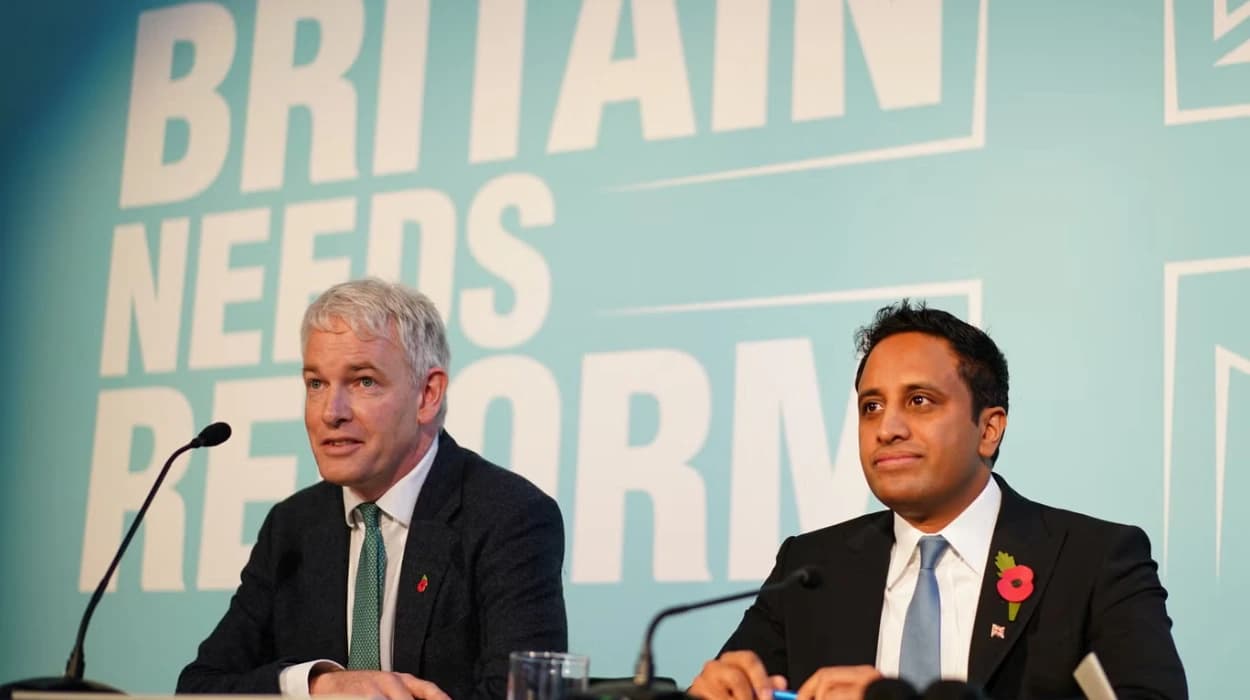Reform UK vows to 'dramatically' cut civil servant numbers
if elected, raising questions about the party's lack of government experience
and potential impact.
Danny Kruger, who left the Conservative Party last month, stated at a press conference in Westminster that the party will not extend the leases on some government buildings, such as the Department for Transport and the Home Office.
He guaranteed a "more concentrated government machine" and said the service's recent growth would be "reversed." He also said that the code governing Whitehall operations would be overhauled.
The East Wiltshire MP was tasked with spearheading Reform's government-building efforts after defecting to Mr. Farage's party in September.
The MP, who served as a shadow minister but has never held a cabinet role, told the press conference:
“If we win the election we will have legislation drafted and ready to go, a new ministerial code and civil service code drafted, orders in council prepared, people lined up for key appointments, and it will all start on day one.”
According to him, they were warning the "civil service that we expect the headcount to fall dramatically under a Reform government."
He also said that his party “don’t come with a chainsaw or a wrecking ball”, adding:
“We respect the institutions of the country, the armed forces, the police, the church, the judiciary and we respect the professionalism and expertise of the people who work in them, so long as those people respect in their turn the right of parliament, and of ministers to make the rules they work by.”
The Home Office, the Department for Transport, and the Department of Health and Social Care are located in buildings on Marsham Street, Horseferry Road, and Victoria Street, respectively.
In response to The Independent's question about whether the party is" against" the idea of allowing civil retainers to work from home because they believe it will negatively impact staff good and productivity, Mr. Kruger stated that they're certain that a reduction in headcount will allow them to do away with those structures.
According to data, 27% of people said they would support Reform in a general election hereafter, putting the party 10 points ahead.
At 17 each, Labour and the rightists are tied, while the Liberal Egalitarians and Greens aren't far behind at 16 and 15, independently.
How would job cuts affect frontline public services?
Reduced staffing can lead to smaller public services being
available and poorer quality of service delivery when people need them most.
Hiring restrictions and layoffs can affect critical deaths, similar as
healthcare staff being diverted tonon-clinical duties, conventions running at
reduced capacity, and detainments in essential opinion and treatment.
Cuts to support places like IT and administration laterally undermine frontline operations by limiting coffers demanded for effective service delivery. Public sector workers report that cuts and restructuring damage the effectiveness and availability of services for vulnerable populations.
A query about what constitutes “frontline services” frequently means cuts may unintentionally affect pivotal areas like biosecurity, cybersecurity, hunt and deliverance, and social care.
